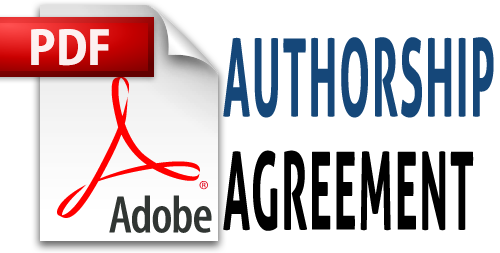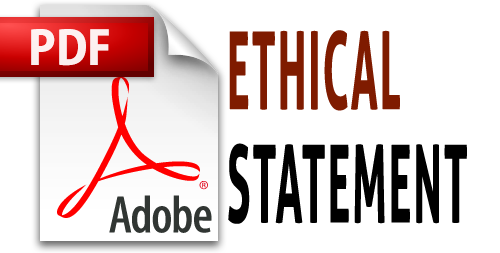PEMBELAJARAN DARING UNTUK MENDUKUNG IMPLEMENTASI MERDEKA BELAJAR KAMPUS MERDEKA (MBKM)
 Utari Dewi(1*),
Alim Sumarno(2),
Lamijan Hadi Susarno(3)
Utari Dewi(1*),
Alim Sumarno(2),
Lamijan Hadi Susarno(3)
(1) Universitas Negeri Surabaya
(2) Universitas Negeri Surabaya
(3) Universitas Negeri Surabaya
(*) Corresponding Author
 Abstract viewed : 2381
|
Abstract viewed : 2381
|  PDF downloaded : 872
PDF downloaded : 872
Abstract
The purpose of this study was to determine the effectiveness of bold learning tools for Model Development and Reality courses in the form of semester learning plans (RPS), media, and learning materials. This learning tool will be used by students who collaborate on student exchanges in order to support the implementation of Merdeka Belajar Kampus Merdeka (MBKM) in higher education. This development uses the ADDIE (Analyze, Design, Develop, Implement, and Evaluate) model. The results of the test using learning tools were declared very good by material experts (100%) and media experts (91.67%). Likewise with the results of trials conducted on students as user samples. Users say the results are very good (90%). Meanwhile, the effectiveness of this research product can be proven by the test scores achieved by the experimental class students. The results of the A test reached 86.4% of the experimental class students and 57.2% of the control class students. In conclusion, it can be stated that this product applies the principles used and is effectively used for bold learning. Considering that the resulting product is easily accessible and user friendly, it will be able to support the implementation of merdeka belajar kampus merdeka
Abstrak
Tujuan penelitian ini adalah untuk mengetahui kelayakan dan keefektifan perangkat pembelajaran daring untuk mata kuliah Pengembangan Model dan Realia berupa rancangan pembelajaran semester (RPS), media, dan bahan pembelajaran. Perangkat pembelajaran ini akan digunakan secara daring oleh mahasiswa yang melakukan kerjasama pertukaran pelajar dalam rangka mendukung implementasi Merdeka Belajar Kampus Merdeka (MBKM) di Pendidikan tinggi. Pengembangan ini menggunakan model ADDIE (Analyze, Design, Develop, Implement, and Evaluate). Hasil uji kelayakan perangkat pembelajaran dinyatakan sangat baik oleh ahli materi (100%) dan ahli media (91,67%). Demikian juga dengan hasil uji coba yang dilakukan kepada mahasiswa sebagai sampel pengguna. Pengguna menyatakan hasilnya sangat baik (90%). Sedangkan keefektifan produk penelitian ini dapat dibuktikan dengan nilai hasil tes yang dicapai mahasiswa kelas experimen. Hasil tes nilai A dicapai 86,4% mahasiswa kelas eksperimen dan 57,2% mahasiswa kelas kontrol. Sebagai kesimpulan dapat dikemukakan bahwa produk ini memenuhi kaidah-kaidah kelayakan dan efektif digunakan untuk pembelajaran daring. Mengingat produk yang dihasilkan ini mudah diakses dan user friendly maka akan dapat mendukung implementasi program merdeka belajar kampus merdeka.
Keywords
References
Afify, M. K. (2019). The influence of group size in the asynchronous online discussions on the development of critical thinking skills, and on improving students’ performance in online discussion forum. International Journal of Emerging Technologies in Learning, 14(5). https://doi.org/10.3991/ijet.v14i05.9351
Amirullah, G., & Hardinata, R. (2017). Pengembangan Mobile Learning Bagi Pembelajaran. JKKP (Jurnal Kesejahteraan Keluarga Dan Pendidikan), 4(02), 97–101. https://doi.org/10.21009/jkkp.042.07
Astuti, T. N., Sugiyarto, K. H., & Ikhsan, J. (2020). Effect of 3D visualization on students’ critical thinking skills and scientific attitude in chemistry. International Journal of Instruction, 13(1). https://doi.org/10.29333/iji.2020.13110a
Bhattacharjee, B., & Deb, K. (2016). Role of ICT in the training of teachers in the XXI century. International Journal of Educational and Information Studies, 6(1), 1–6. http://www.ripublication.com/ijeis16/ijeisv6n1_01.pdf
Dewi, S. R., & Haryanto, H. (2019). Pengembangan multimedia interaktif penjumlahan pada bilangan bulat untuk siswa kelas IV sekolah dasar. Premiere Educandum : Jurnal Pendidikan Dasar Dan Pembelajaran, 9(1), 9. https://doi.org/10.25273/pe.v9i1.3059
Ernawati, I. (2017). Uji Kelayakan Media Pembelajaran Interaktif Pada Mata Pelajaran Administrasi Server. Elinvo (Electronics, Informatics, and Vocational Education), 2(2), 204–210. https://doi.org/10.21831/elinvo.v2i2.17315
Friadi, J., Ganefri, Ridwan, & Efendi, R. (2020). Development of product based learning-teaching factory in the disruption era. International Journal of Advanced Science and Technology, 29(6).
Haryono, M., & Hadiwinarto, H. (2021). KEMAMPUAN GURU DALAM MERANCANG PENILAIAN PEMBELAJARAN PAUD DI GUGUS MENGKUDU BENGKULU TENGAH. Ad-Man-Pend : Jurnal Administrasi Manajemen Pendidikan, 3(2), 30–40. https://doi.org/10.32502/AMP.V3I2.3056
Helsa, Y., & Kenedi, A. K. (2019). Edmodo-Based Blended Learning Media in Learning Mathematics. Journal of Teaching and Learning in Elementary Education (Jtlee), 2(2), 107–117. https://doi.org/10.33578/jtlee.v2i2.7416
Himanen, L., Jäger, M. O. J., Morooka, E. V., Federici Canova, F., Ranawat, Y. S., Gao, D. Z., Rinke, P., & Foster, A. S. (2020). DScribe: Library of descriptors for machine learning in materials science. Computer Physics Communications, 247. https://doi.org/10.1016/j.cpc.2019.106949
Kristanto, A., Sulistiowati, & Pradana, H. D. (2021). Brain-Based Online Learning Design in The Disruptive Era for Students in University. Journal of Educational and Social Research, 11(6), 277. https://doi.org/10.36941/jesr-2021-0147
Mariono, A., Bachri, B. S., Kristanto, A., Dewi, U., Sumarno, A., Kholidya, C. F., & Pradana, H. D. (2021). Online Learning in Digital Innovations. Journal of Education Technology, 5(4), 547–555. https://doi.org/10.23887/JET.V5I4.40115
Octafiana, W., Ekosusilo, M., & Subiyantoro, S. (2018). Pengembangan Multimedia Interaktif Pada Materi Pesawat Sederhana Untuk Siswa Sekolah Dasar. Jurnal Komunikasi Pendidikan, 2(2), 168. https://doi.org/10.32585/jkp.v2i2.131
Pradana, H. D. (2021). Interactive Multimedia Based on Mobile Device for Primary School Students. Madrasah: Jurnal Pendidikan Dan Pembelajaran Dasar, 14(1), 71–78. https://doi.org/10.18860/mad.v14i1.12627
Pradana, H. D., Kristanto, A., & Dewi, U. (2021). Online Digital Book as Learning Material in University. Proceedings of the International Joint Conference on Arts and Humanities 2021 (IJCAH 2021), 618, 1099–1104. https://doi.org/10.2991/ASSEHR.K.211223.193
Pradana, H. D., & Kuswandi, D. (2018). Augmented Reality Learning Materials for Motion Picture Making Subject. 6(3), 108–114. http://journal.um.ac.id/index.php/jph/article/view/11810
Program, M., Akuntansi, S. P., & Keguruan, F. (2021). Tantangan Pengembangan Kurikulum Merdeka Belajar Kampus Merdeka di Perguruan Tinggi. Seminar Nasional Teknologi Edukasi Sosial Dan Humaniora, 1(1), 749–761. https://doi.org/10.53695/SINTESA.V1I1.405
Pujilestari, Y. (2020). Dampak Positif Pembelajaran Online Dalam Sistem Pendidikan Indonesia Pasca Pandemi Covid-19. Adalah, 4(1), 49–56. http://journal.uinjkt.ac.id/index.php/adalah/article/view/15394/7199
Sayekti, A. M., & Suparman. (2020). Development of PJBL-based LKPD with STEM approach design to improve critical thinking skills. International Journal of Scientific and Technology Research, 9(3).
Setyawati, E., Mulyawati, I., & Soecahyadi, S. (2022). Studi Kebijakan Merdeka Belajar Kampus Merdeka (MBKM) dengan Menggunakan Pendekatan Kuantitatif dan Kualitatif. EDUKATIF : JURNAL ILMU PENDIDIKAN, 4(1). https://doi.org/10.31004/edukatif.v4i1.2003
Sintya, Y. R., Sutadji, E., & Djatmika, E. T. (2020). Pengembangan Multimedia Interaktif pada Pembelajaran Tematik Kelas V Sekolah Dasar. Jurnal Pendidikan: Teori, Penelitian, Dan Pengembangan, 5(8). https://doi.org/10.17977/jptpp.v5i8.13905
Sugiyono. (2016). Metode Penelitian Kuantitatif, Kualitatif dan R&D. PT Alfabet.
Sulisstyowati, E., & Amrullah, M. (2021). Implementation Responsibility Character Education at SMP 5 Muhammadiyah Tulangan Studens In Onlne-Based Elearning. Proceedings of The ICECRS, 10. https://doi.org/10.21070/icecrs20211069
Sugiyono. 2017. Metode Penelitian Kuantitatif, Kualitatif, dan R&D. Bnadung: Alfabeta.
Supriyatno, T., Susilawati, S., & Hassan, A. (2020). E-learning development in improving students’ critical thinking ability. Cypriot Journal of Educational Sciences, 15(5). https://doi.org/10.18844/CJES.V15I5.5173
Susanti, E. N., & Suswandari. (2021). Efektivitas Pembelajaran Daring pada Mahasiswa Pendidikan Ekonomi UHAMKA di Masa Pandemi COVID 19. Jurnal Penelitian Dan Penilaian Pendidikan, 3(2), 32–43. https://doi.org/10.22236/jppp.v3i2.6919
Tegeh, I. M. (2014). Model Penelitian Pengembangan. Graha Ilmu.
Vilkova, K., & Shcheglova, I. (2021). Deconstructing self-regulated learning in MOOCs: In search of help-seeking mechanisms. Education and Information Technologies, 26(1). https://doi.org/10.1007/s10639-020-10244-x
Wibawa, R. P., Wibawa, S. C., Susanti, M. D. E., & Sulistiyo, E. (2021). E-readiness Measurement in the Virtual Application Learning. IOP Conference Series: Materials Science and Engineering, 1125(1). https://doi.org/10.1088/1757-899x/1125/1/012059
Widayati, S. (2020). Respon Mahasiswa Pada Proses Pembelajaran Mata Kuliah Daring. Child Education Jurnal, 2(1).
Yu, J., & Jee, Y. (2021). Analysis of online classes in physical education during the covid-19 pandemic. Education Sciences, 11(1). https://doi.org/10.3390/EDUCSCI11010003
Zhu, M., Bonk, C. J., & Doo, M. Y. (2020). Self-directed learning in MOOCs: exploring the relationships among motivation, self-monitoring, and self-management. Educational Technology Research and Development, 68(5). https://doi.org/10.1007/s11423-020-09747-8
Zumaroh, S., Aripriharta, A., & Wibawanto, S. (2020). Pengembangan Komik Sebagai Media Komunikasi Visual Belajar Rangkaian Listrik AC. INOVTEK - Seri Elektr
Refbacks
- There are currently no refbacks.
Copyright (c) 2022 Utari Dewi, Alim Sumarno, Lamijan Hadi Susarno

This work is licensed under a Creative Commons Attribution-NonCommercial 4.0 International License.
Kwangsan Indexed By
Kwangsan: Jurnal Teknologi Pendidikan diterbitkan oleh Balai Besar Guru Penggerak (BBGP) Prov. Jawa Timur.
Kementerian Pendidikan dan Kebudayaan
Alamat Redaksi:
Jl. Mangkurejo, Ds. Kwangsan, Sedati - Sidoarjo.
Telp 0318911373 Fax. 0318911392
Email: jurnal.kwangsan@kemdikbud.go.id & jurnalkwangsan@dikbud.belajar.id






























